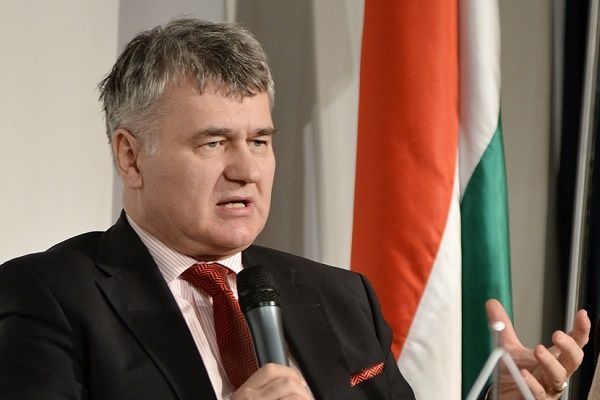"In a critical situation, those who demand the introduction of the euro forget that the adoption of the common currency - otherwise without preparation time - would only make the situation worse, and the situation is the most serious in the Eastern European countries that use the euro," economics professor Csaba Lentner told our newspaper.
In the spring of last year, the Magyar Nemzeti Bank already drew the government's attention to the growing inflationary dangers, economics professor Csaba Lentner told our newspaper. The teacher of the National University of Public Service and the Károli Gáspár Reformed University put it this way: "The difficulties arose from the overheating of the economy and the extraordinary budget situation caused by Covid-19, which were compounded by the energy and food price increases due to the Russian-Ukrainian war."
The Magyar Nemzeti Bank remains committed to maintaining price stability, but it is important to point out that in a modern market economy, the central bank is a tool for inflation moderation and financial stabilization, not the trigger for monetary deterioration, the professor emphasized. Regarding the central bank measures, he noted that they have a longer-term effect, the results do not appear overnight.
When, in the previous decade, thousands of small and medium-sized entrepreneurs received preferential loans from the central bank's Growth Loan Program, the effect of this on the strengthening of the economy was realized within months and became the trigger for the most successful decade of the last hundred years, explained Csaba Lentner. He added that financial interventions have a "maturing" process, and it is foolish to ask the central bank to account for their favorable effects on the same day.
According to Csaba Lentner, the government's official price control and investment restructuring measures, combined with the central bank's base rate increases, the correction of the interest rate corridor and the currency swap operations, resulted in the Hungarian inflation rate being the lowest among the neighboring countries. According to the latest audited data at the end of May, Hungarian inflation is 10.8 percent, while the Czech Republic's is 15.2, Poland's is 12.8, Slovakia's is 11.8, and Romania's is 12.4 percent.
The Hungarian inflation figure is about two percent higher than that of the euro zone, which includes the most developed European Union member states, which, based on the professor's assessment, is definitely a favorable figure. He stated:
The Magyar Nemzeti Bank does not follow the events, but manages them. With its tools, it carries out active and effective financial market regulation.
Csaba Lentner also said that, in a critical situation, those who demand the introduction of the euro forget that the adoption of the common currency in itself - without any preparation time - would only make the situation worse, and even those who use the euro
the situation is most critical in Eastern European countries. See inflation of 16.8 percent in Latvia, 18.5 percent in Lithuania and 20.1 percent in Estonia. Therefore, the introduction of a common currency would not solve the problems, according to the professor.
The fact that inflation has not gone away in Hungary and is not above 20 percent, for example, as in Estonia, is due to the coordinated measures of the government and the National Bank.
Analyzing the processes and measures, the economics professor stated that by the end of 2022, inflation could be moderated so that a positive real interest rate could even develop, i.e. an interest rate higher than inflation could occur, which would be an incentive for savings and investments. As a solution, he highlighted that, for the sake of everything, more decisive steps must be taken for the modernization and competitiveness of the Hungarian economy, as well as for efficient energy and cost management.
Source: Magyar Hírlap
Featured image: PSZO












